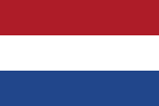

Name of Resource | Agreements promoting International Responsible Business Conduct (RBC agreements) |
Type | Agreement |
Country / jurisdiction | Netherlands |
Enacting authority | Social Economic Council of the Netherlands, Dutch Government, Dutch Unions, Dutch NGOs (a.o. UNICEF, Oxfam), Dutch business sectors |
Entry into force / date of approval | 2014, SER advisory report; 2016 onwards RBC Agreements |
Description | In 2014, the Social and Economic Council of the Netherlands recommended concluding multi-stakeholder agreements promoting international responsible business conduct (RBC agreements) in high risk sectors. Since 2016 onwards ten Agreements were signed, amongst others for the clothing and textile sector, the food industry, insurance and pension sectors and the metal sector. Businesses, labour unions, NGOs, government are parties to the Agreements. Cooperation with other parties increases the leverage of businesses and provide support to identify, prevent and address negative impacts in their value chains, such as child labour, forced labour and freedom of association, in line with the OECD Guidelines for Multinational Enterprises and UN Guiding Principles on Business and Human Rights. |
Availability |
.
Name of Resource | National Action Plan on Business and Human Rights |
Type | Policy |
Country / jurisdiction | Netherlands |
Enacting authority | Ministry of Foreign Affairs of the Netherlands |
Entry into force / date of approval | April 2014 |
Description | The aim of the current National Action Plan (NAP), based on the United Nations Guiding Principles for Business and Human Rights (UNGPs), is to ensure companies protect human rights either directly or within supply chains. Five main points are addressed by the Action Plan: 1. Active role of the government 2. Policy coherence 3. Clarifying due diligence 4. Transparency and reporting 5. Scope for remedy. The current NAP was published in 2014 and therefore needs an update. The Dutch government starts a revision of the NAP at the end of 2019. The first step of the revision is a gap analysis. The revision will also include multi-stakeholder consultations. |
Availability | ENG: https://media.business-humanrights.org/media/documents/files/documents/netherlands-national-action-plan.pdf |
.
Name of Resource | Child Labour Due Diligence Law |
Type | Legislation |
Country / jurisdiction | Netherlands |
Enacting authority | Parliament of the Netherlands |
Entry into force / date of approval | 13 November 2019 |
Description | The law requires Dutch companies or companies that sell products on the Dutch market to examine whether child labour occurs in their production chain (due diligence). If that is the case they should develop a plan of action to combat child labour and draw up a declaration about their investigation and plan of action. That statement will be recorded in a public register by a yet to be designated public authority. The Dutch Parliament and the Dutch Senate have approved the law. However, specific aspects of the law have to be worked out in more detail in lower level regulation. The Act will enter into application after the adoption of this regulation, this is not expected to happen before the end of 2021. |
Availability | ENG: https://www.government.nl/documents/publications/2017/02/07/child-labour-duty-of-care |
.
Name of Resource | Policy on the inclusion of a due diligence requirement in public contracts |
Type | Policy |
Country / jurisdiction | Netherlands |
Enacting authority | Parliament of the Netherlands |
Entry into force / date of approval | 13 November 2019 |
Description | Dutch public procurement law recognizes the general principles of public procurement law (equal treatment, non-discrimination, mutual recognition, proportionality and transparency) and the general principles of Dutch civil law (including pre-contractual good faith). The Public Procurement Act 2012 (amended per 1 July 2016) applies to all public contracts. The Dutch Public Procurement Act is further detailed in the Public Procurement Decree (Aanbestedingsbesluit). The Proportionality Guide (Gids Proportionaliteit), Works Procurement Regulations 2016 (Aanbestedingsreglement Werken 2016) and the European Single Procurement Document / ESPD (Uniform Europees Aanbestedingsdocument / UEA) are part of the Public Procurement Decree. |
Availability | NLD: |